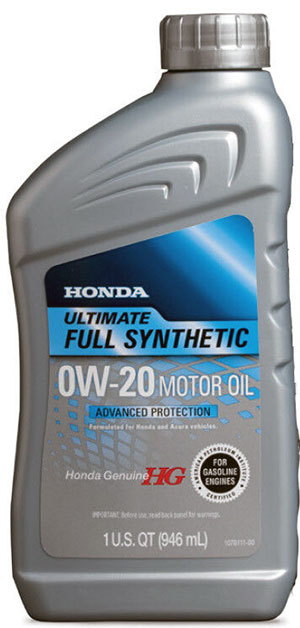Contents
Defining Conventional Versus Synthetic
Conventional motor oils, refined from crude oil, are formulated in various viscosity grades and quality levels. Your choice depends on driving style and the ambient temperature ranges where you drive. Heavier grades are better for heavier-duty driving needs like towing and hot weather, whereas lighter grades are typically better for everyday commuting, cold weather, and improved fuel economy.
Fully synthetic motor oil, engineered in a lab, has been chemically modified to work more effectively than conventional oils. After all, when the dinosaurs died millions of years ago, they didn’t know their remains would someday be poured into a car’s engine. As such, conventional crude oil in a more natural form isn’t optimized for a car.
On the other hand, fully synthetic oil has been enhanced by scientific processes to make a product ideal for engine performance and durability. It is commonly more uniform and has fewer impurities. Most synthetic oils start from crude oil that is either radically changed in manufacturing or made from non-petroleum products.
Synthetic blended oil, as the name implies, combines synthetic and conventional base oil for added resistance to oxidation (compared to conventional oil) and excellent low-temperature properties. That said, when it comes to fully synthetic and synthetic blends, there are no regulated standards. The blend could contain 50 percent or more synthetic oil or as little as 5 percent.
Should You Buy Conventional or Synthetic Oil?

- If you drive an old car whose best days are behind it, you’re most likely better off sticking with conventional oil.
Your aged vehicle won’t have enough time left to appreciably benefit from synthetic, and the lower price of conventional oil saves money. - However, if you drive a newer vehicle, you should strongly consider choosing a synthetic or synthetic blend.
Their superior characteristics will help extend your engine’s service life. Even though you will pay more for synthetics, you’ll save money in the long run since you will change oil less frequently and most likely need less maintenance.
In many respects, synthetic oil is better for your engine. While it’s more expensive up front, a study conducted by AAA found that synthetic motor oil performs an average of 47 percent better in various industry-standard tests. AAA found it particularly beneficial for newer turbocharged engines and vehicles that frequently drive in stop-and-go traffic, tow heavy loads, or operate in extreme climates of hot or cold conditions.
Consumer Reports also confirmed there are good reasons to use synthetic motor oil. It’s designed to resist breakdown and last longer than conventional motor oil. Consumer Reports backs up the AAA findings regarding superior performance in hot and cold climates, resistance to engine sludge buildup, and engine protection from wear and tear.
Shop now for motor oilHeavier or Lighter Motor Oil?
Regardless of your choice between conventional or synthetic oils, these products are rated by the relative viscosity of the fluid, often called an oil “weight.” The numbers on an oil container show how well the oil flows at hot and cold temperatures, with lower numbers being relatively thinner or lighter and higher numbers thicker or heavier.
- Heavier oils provide more engine protection in higher temperatures but don’t flow quite as well when cold.
- Lighter oils give better fuel economy because they provide less resistance to the engine.
However, it is always recommended to use the viscosity of oil listed in your car’s owner’s manual. Some vehicles may indicate different oil weights based on your driving conditions, but staying with the engine manufacturer’s recommendations ensures that your car performs as designed.
The End of 3,000-Mile Oil Changes
Synthetic oil lasts longer, allowing for longer intervals between oil changes. This is highly dependent on the brand of synthetic oil, so you’ll need to read the label on the container. Generally, you’ll see a range anywhere from 3,000 to 20,000 miles.
Many sources still promote the 3,000-mile oil change as an inexpensive way to keep your engine in top-performing condition. While that sounds reasonable, disposing of perfectly good motor oil affects the environment and could be an unnecessary expense.

Change your oil and filter according to the manufacturer service intervals.
With synthetic oil, change intervals could range from as low as every 7,500 up to 25,000 miles. We suggest following the recommendations in your vehicle owner’s manual.
Read: How Long Does an Oil Change Take?
Switching to Synthetic Oil
Switching from conventional to synthetic is perfectly safe and even recommended. There are, however, some caveats. Switching to full-synthetic oils for pre-1990 models or any engine specifically made to operate on conventional oil is generally not recommended.
Because synthetic oil also contains a superior detergent cleaner additive, it will wash away oil sludge and particles. That could uncover an existing leak that was being blocked by the sludge (although synthetic oil will not cause your vehicle to leak oil).
If you switch to synthetic and want to return to conventional oil, it shouldn’t be a problem. Since most synthetics use conventional oil as a base stock, switching back and forth does not harm the engine.
Discover: Causes and Cures for Oil Pan Leaks





